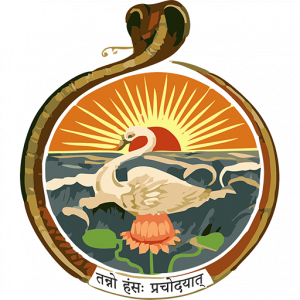A few of our centres continued Covid‑19 pandemic relief work. Details of their work are given below.
India:
Delhi centre distributed 125 LED projectors among as many Jawahar Navodaya Vidyalaya schools to enable them to provide online education in April.

West Bengal: (a) Raiganj centre sanitized a few important public areas in Raiganj on 26 April. (b) Sinthi (Beni Pal Udyan) centre, Kolkata, distributed 60 kg rice, 36 kg flour, 6 kg pulses, 6 kg gram, 1 kg soya chunks, 6 litres cooking oil, 1 kg assorted spices and 6 kg salt among 12 families from 1 to 31 March.
Bangladesh:
Bagerhat centre distributed 250 kg rice, 50 kg pulses, 50 kg potato, 50 kg salt and 25 litres cooking oil among 50 families on 20 April.
South Africa:
(i) Durban centre, along with its sub-centres, served meals to 230 people in Ladysmith and distributed food hampers to 117 families in April. Each hamper contained 2 kg rice, 1 kg pulses, 1 kg sugar beans, 500 gm macaroni, 100 gm assorted spices, 750 ml cooking oil, 1 kg sugar, 1 litre milk, 100 tea-bags, 1 packet soup powder, 1 kg maize meal, 1 kg salt, 520 gm jam, washing soap, bathing soap and toothpaste tubes.
(ii) Phoenix centre, along with its Johannesburg sub-centre, distributed 1750 kg rice, 230 kg maize meal, 280 kg fortified cereals, 30 kg noodles, 1100 kg pulses, 85 kg assorted spices, 285 kg salt, 620 litres cooking oil, 725 cans of tinned food, 30 kg soup powder, 35,500 tea bags, 290 kg sugar, 395 litres milk, 215 kg milk powder, 6188 breakfast cereal packets, 25 kg biscuits, 100 loaves of bread, 150 cakes, 302 litres fruit juice, 36 packets of snacks, 430 matchboxes, 3135 kg vegetables, 200 tubes of toothpaste, 730 bars of soap, 504 adult napkins, 184 litres detergent, 72 sewing kits and assorted household and clothing items in April. The centre also distributed a litre of milk and a loaf of bread each to 22 families thrice a week. It provided 12 families with LP gas for a month. Further, the centre’s clinic sponsored 40 dialysis sessions for three patients and provided counselling service to healthcare professionals and workers.
Arunachal Pradesh: In a devastating fire at Longliang village in Tirap district on 18 March, 115 houses were burnt down. Narottam Nagar centre distributed 600 kg rice, 120 kg pulses, 480 packets of biscuits, 640 kg potatoes, 120 kg onions, 120 litres of cooking oil, 120 kg salt, 240 tubes of toothpaste, 480 toothbrushes, 120 bars of bathing soap, 120 packets of washing soap, 120 packets of washing powder, 120 mosquito nets, 120 towels and 120 sets of utensils among 115 families on 25 March.
(ii) Assam: In response to a fire incident at Kayasthagram village of Karimganj district on 9 April, Karimganj centre distributed 10 kg rice, 2 kg pulses, 2 saris, 2 dhotis, 4 blankets, 4 pillows, 4 towels, 2 mosquito nets and a set of kitchen utensils to the affected family.
(iii) Tamil Nadu: In a devastating fire in Kattunayakkan Street in Nagapattinam on 9 April, 40 houses were burnt down. Thanjavur Math (a sub-centre of Chennai Math) distributed garments to 38 children of the affected families on 14 April.
Odisha: In a devastating fire at H. Tihidi village in Bhadrak district many houses were destroyed. Bhubaneswar centre installed on 8 April a pump set in that village for the use of the affected families.
To extend a helping hand to the poor and needy people, 6 of our centres distributed 930 saris, 1051 shirts, 1857 trousers, cloth for 815 shirts, 1300 blankets, 180 jackets and 972 sweaters among the poor and needy people.
 i) Kerala: (a) Koyilandy centre renovated the dilapidated house of a poor family. In addition a kitchen, water well with motor, bathroom cum toilet with all sanitary fittings were newly constructed and the electrical wiring with all accessories like fan & lights etc. were also done at Arikkulam village, Kozhikode district. The house was inaugurated on 14 April. (b) Kozhikode centre repaired the roof of a house for a poor person in Puthukode, Kozhikode district in March.
i) Kerala: (a) Koyilandy centre renovated the dilapidated house of a poor family. In addition a kitchen, water well with motor, bathroom cum toilet with all sanitary fittings were newly constructed and the electrical wiring with all accessories like fan & lights etc. were also done at Arikkulam village, Kozhikode district. The house was inaugurated on 14 April. (b) Kozhikode centre repaired the roof of a house for a poor person in Puthukode, Kozhikode district in March.

(ii) Rajasthan: Khetri centre constructed a toilet block for the students of Government Jai Singh Higher Secondary School, Khetri was handed over to the school authorities on 3 April. The toilet block has three separate sections for the boys, girls and the disabled.

